Greece became the 37th country to legalize gay marriage, but the first Orthodox country. What does this mean, and what should the Church do? What should Ukraine prepare for?
The fact that Greece became the first Orthodox country where same-sex partnerships are officially equated with traditional marriages is very significant and symbolic. After all, for a long time Orthodoxy itself was called the Greek faith. And Greece, as the ideological heir of the Byzantine Empire, was associated with the stronghold of Orthodoxy. How many times have we heard from the lips of the Greek hierarchs of both the Constantinople and Greek Churches that it is the Greeks who are the standard of Orthodox spirituality, the heirs of the patristic tradition, the measure of righteousness. And now this is the first country that calls itself Orthodox to legalize gay marriage, a country where two sodomites can be considered spouses, adopt and raise children.
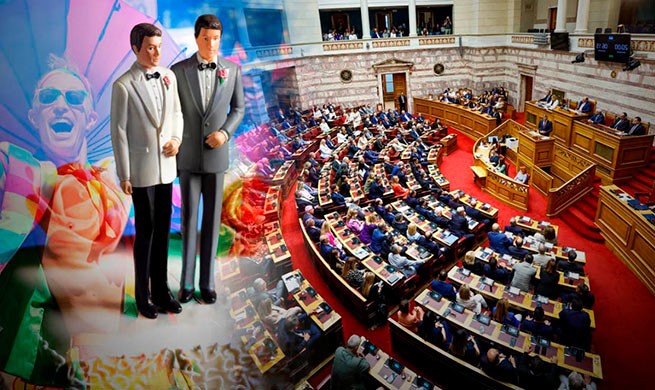
There are many places in the Bible where the theme “the first will be last and the last will be first” (Mark 10:31) is illustrated with specific examples. For example, Esau sold his birthright to Jacob for lentil stew (Gen. 25:29-34), and Jacob, dying, blessed Ephraim and Manasseh, the two children of his son Joseph, and made the younger one greater. Joseph thought that his elderly father had made a mistake and asked him to change it, but Jacob insisted on his own and said: “His youngest brother will be greater than he” (Gen. 48:17-19). And this theme was most harshly expressed in the words of the Lord: “And you, Capernaum, who were exalted to heaven, will be brought down to hell…” (Matthew 11:23). This should be remembered by everyone who likes to declare their greatness, glorious history, and great ancestors. Another significant point: the Greek Church was the first after the Patriarchate of Constantinople to recognize the OCU, and now the Greek state has recognized gay marriage. Here, of course, there is no direct cause-and-effect relationship, but certain parallels suggest themselves. Moreover, recently, voices have increasingly been heard from the Patriarchate of Constantinople in defense of gays, saying that they also deserve respect and pastoral love, and their adopted children are no different from children in traditional families. In general, all the rhetoric that sounded several years ago from the depths of the Vatican has today turned into official permission to bless gay couples. But let’s return to the legalization of gay marriage in Greece.
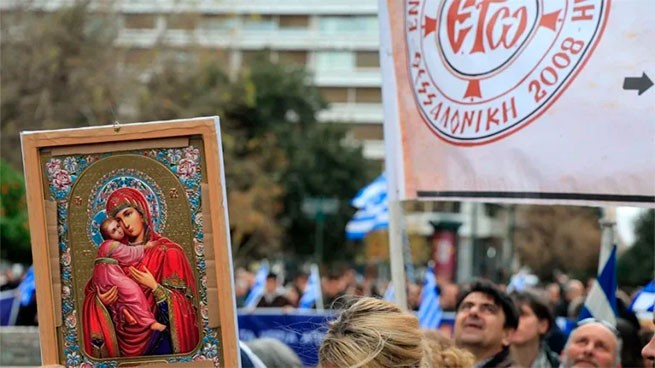
The vote in the Greek Parliament was preceded by protest campaign. On Sunday, February 11, a demonstration against the new law took place in Athens, in which, according to the BBC, about four thousand people took part. Before this, demonstrations were also held in various cities across the country. The Greek Church has strongly opposed the legalization of same-sex marriage. The Primate of the Church, Archbishop of Athens and All Greece Jerome II, said that the new law is an attempt to impose new realities on the country that destroy the fabric of society. Recently, the word “realities” has become quite tired, but it means what exists at the moment. Realities cannot be imposed: they exist or they do not. And apparently, these realities in Greece are not in favor of the Church.
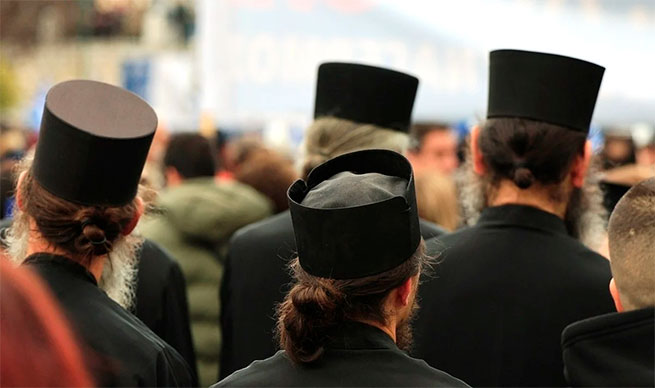
According to the American Pew Research Center, about 90% of Greek residents consider themselves Orthodox Christians. But the question “does religion play a very important role in your life?” Only 58% of Greeks answered positively, and to the question “do you go to church regularly?” Only 16% answered “yes”. Thus, truly churchgoers turn out to be a minority, even if we correct for statistical error. The results of voting in the Greek parliament allow us to draw a disappointing conclusion for the Greek Church: Greek society as a whole has indeed “ripened” to accept gay marriage. The fact that 176 out of 245 members of the Greek Parliament present voted for legalization indicates widespread support for this idea in Greek politics. Not only deputies from the ruling New Democracy party, but also representatives of the opposition, including the Syriza party, voted for the new law. Greece is a democratic country, and MPs there would never have supported the law if they knew that their voters were categorically against it. As a rule, the opposition opposes the initiatives of parties in power if it knows that these initiatives are unpopular in society. But in this case we see the opposite; among the opposition there is also support for the legalization of gay marriage. And when the same Syriza was in power, in 2015 it adopted a law legalizing same-sex civil unions. This form is intermediate on the way to full recognition of gay marriage. Many countries first legalize unions, allow society to get used to this state of affairs, and then pass laws to completely legalize gay marriage.
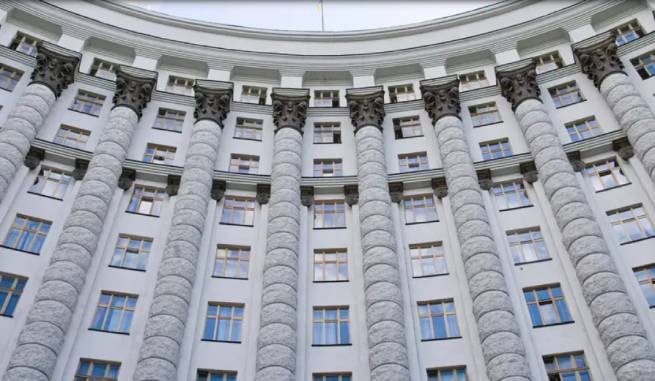
Today this topic is being updated in Ukraine. As recently as February 15, 2024, the Ministry of Foreign Affairs hosted a round table on LGBT rights. Moreover, it was not just LGBT lovers who gathered to speculate on the topic. It was a full-fledged meeting of high-ranking government officials, as well as people’s deputies. People’s Deputy Inna Sovsun reported on her Facebook: “We talked at the Foreign Ministry about partnerships with the participation of three deputy ministers, the first vice speaker of the Verkhovna Rada, and almost a dozen people’s deputies. This is not a typical round table, but a transition to another level of discussion.” She also cited data from some mysterious opinion polls that supposedly “73% of Ukrainians believe that LGBT+ people should be protected from discrimination, and that 59% of Ukrainians support partnerships for LGBT+ couples.” It took the Greeks 9 years to go from legalizing partnerships to legalizing gay marriage. Let’s see what happens with Ukraine.

There is an opinion that the LGBT agenda is being imposed on Ukraine from the outside, that certain international structures and countries with very liberal democracies are demanding progress from our authorities on this issue. This is true, but only partly. Yes, our society as a whole is not ready for the legalization of gay marriage, despite the figures announced by People’s Deputy I. Sovsun, but it will not actively protest against this. This means that the LGBT issue can become a bargaining chip in bargaining with our international partners. For example, “you will turn a blind eye to our corruption, and we will legalize LGBT for you.” Such bargaining would have been impossible if Ukrainian society had such a strong commitment to traditional values that any politician knew that if he promoted the LGBT issue, it would mean the end of his political career. Imagine that in Turkey or another Muslim country with a democratic regime, the authorities would try to hint at the legalization of LGBT people. It is possible to impose an LGBT agenda only where there is already ground for it.
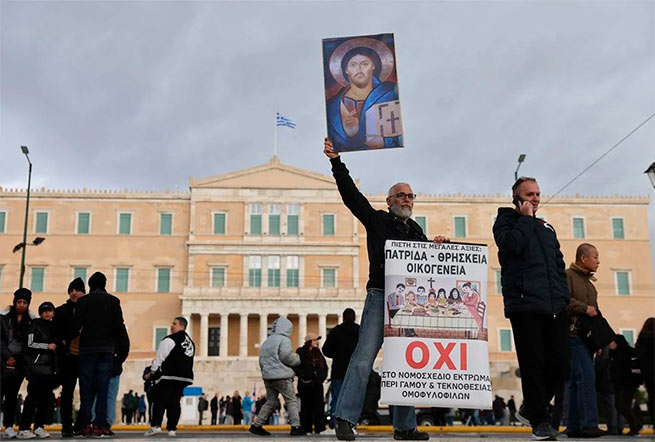
The legalization of gay marriage in Greece indicates the progressive secularization of society, when faith is not denied, but simply becomes irrelevant. And this is a process that cannot be stopped by demonstrations and marches. But the Church, naturally, must express its attitude to what is happening. Let’s see what the Greek Church will do; its experience may be useful to us. What decisions will she make after those in power did not heed the Church’s categorical call to refuse to legalize gay marriage?
The key to resolving this issue may lie in the fact that the Church must reconsider its views on relations with society and the state. It is necessary to understand that the Church is no longer an element of the state mechanism, without whose approval the state cannot make decisions on very important issues. It is also not the dominant moral authority for society, capable of influencing the mentality of the people. All this has almost been lost in modern European countries. It is necessary to understand that the Church can no longer establish the rules by which society will live. All that the Church can do is testify to people about the Truth and introduce those who believe to the Truth through the sacraments. In this context, the Church must testify that the God of the Bible announced to people that sodomy is a mortal sin that perverts human nature itself and that those who remain in this sin will not inherit the Kingdom of God. The Apostle Paul wrote to the Corinthians: “Do not be deceived: neither fornicators, nor idolaters, nor adulterers, nor wicked people, nor homosexuals, nor thieves, nor the covetous, nor drunkards, nor revilers, nor extortioners will inherit the kingdom of God” (1 Cor 6:9). ,10). In this phrase, in fact, there is no humiliation of these people, no hint that they do not have equal rights with everyone, no infringement of their dignity, or anything at all related to earthly life. There is only a warning here that punishment awaits them in the future life. The Church must testify to this, and then the choice is up to each person.

Actually, the Greek Church has already done this, but the next step should be a declaration that one cannot remain within the boundaries of the Church and support gay marriages, not to mention participating in them. It is necessary, following the example of the Apostle Paul, to say: “do not be deceived by supporting gay marriage, you have placed yourself outside the Church.” In church language this is called anathema. On the eve of the vote in the Greek parliament, a similar proposal was made by some bishops: all deputies who voted for the legalization of same-sex marriage should be excommunicated from the Church.
This is a very correct proposal. True, there is one difficulty here, because the word anathema for most people means a curse, that is, calling all sorts of troubles and misfortunes on the head of such a person. Therefore, anathema can be perceived as an insult, which is fundamentally wrong. An anathema is not an insult, but a warning, a statement of the fact that a person, by his actions, has placed himself outside the Church. This correct understanding of anathema must be explained calmly and clearly. If the Church means nothing to a person, then he does not care whether he is in the Church or not, therefore he has nothing to fear from anathema. The Church is a closed society of people who have believed in Christ and united with him in the Eucharist. You cannot be in the Church and do something that is contrary to Christ. This is what needs to be stated very loudly and unambiguously. It is unlikely that excommunication from the Church today will frighten those who support LGBT people, but, firstly, it is fair, and secondly, it is necessary to clearly distinguish between the concepts of what is good and what is bad. In the words of the Apostle Paul: “What agreement is there between Christ and Belial? Or what is the complicity of the faithful with the infidel? What is the relationship between the temple of God and idols? For you are the temple of the living God, as God said: “I will dwell in them and walk in them; and I will be their God, and they will be My people.” “Therefore, come out from among them and be separate, says the Lord, and do not touch the unclean; and I will receive you.” “And I will be a Father to you, and you shall be My sons and daughters, says the Lord Almighty” (2 Cor 6:15-18).
Siberian Journal of Journalists
The opinion of the author may not reflect the opinion of the editors.







More Stories
Six Greek high school students win medals at International Mathematical Olympiad
Olympic Games: Greek Delegation Athletes Head to Paris
Big "police purge" on Athos